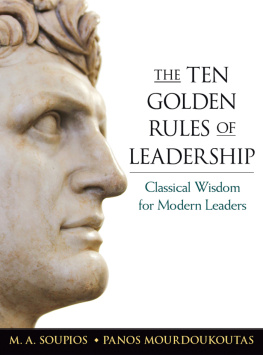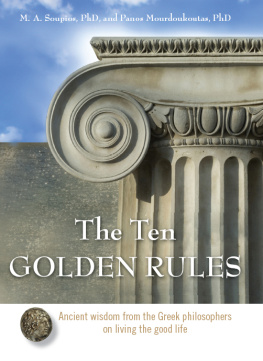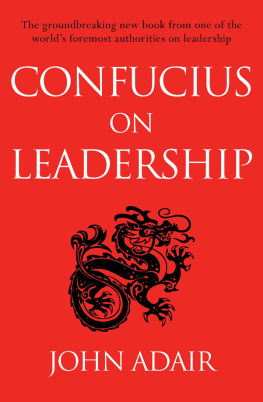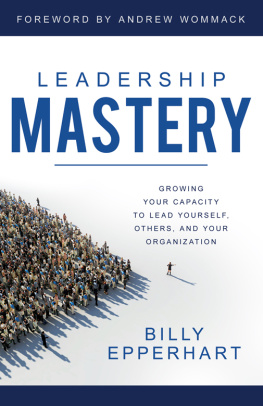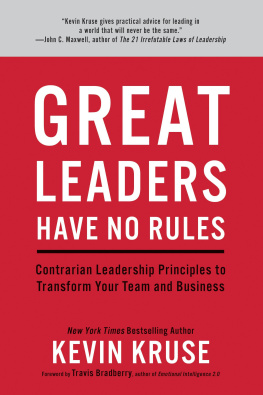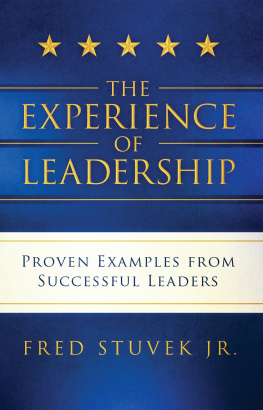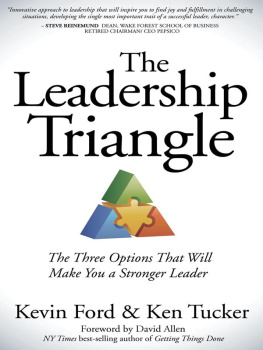THE TEN GOLDEN RULES
OF LEADERSHIP
THE TEN GOLDEN RULES
OF LEADERSHIP

Classical Wisdom for Modern Leaders
M. A. Soupios
Panos Mourdoukoutas

Bulk discounts available. For details visit:
www.amacombooks.org/go/specialsales
Or contact special sales:
Phone: 800-250-5308
Email: specialsls@amanet.org
View all the AMACOM titles at: www.amacombooks.org
American Management Association: www.amanet.org
This publication is designed to provide accurate and authoritative information in regard to the subject matter covered. It is sold with the understanding that the publisher is not engaged in rendering legal, accounting, or other professional service. If legal advice or other expert assistance is required, the services of a competent professional person should be sought.
Library of Congress Cataloging-in-Publication Data
Soupios, Michael A., 1949
The ten golden rules of leadership : classical wisdom for modern leaders / M. A. Soupios and Panos Mourdoukoutas.
pages cm
ISBN 978-0-8144-3467-3 (hardcover) ISBN 0-8144-3467-3 (hardcover) 1. Leadership. I. Mourdoukoutas, Panos. II. Title.
HD57.7.S6937 2014
658.4'092dc23
2014011248
ISBN 978-0-8144-3468-0 (ebook)
2015 M. A. Soupios and Panos Mourdoukoutas
All rights reserved.
Printed in the United States of America.
This publication may not be reproduced, stored in a retrieval system, or transmitted in whole or in part, in any form or by any means, electronic, mechanical, photocopying, recording, or otherwise, without the prior written permission of AMACOM, a division of American Management Association, 1601 Broadway, New York, NY 10019.
The scanning, uploading, or distribution of this book via the Internet or any other means without the express permission of the publisher is illegal and punishable by law. Please purchase only authorized electronic editions of this work and do not participate in or encourage piracy of copyrighted materials, electronically or otherwise. Your support of the authors rights is appreciated.
About AMA
American Management Association (www.amanet.org) is a world leader in talent development, advancing the skills of individuals to drive business success. Our mission is to support the goals of individuals and organizations through a complete range of products and services, including classroom and virtual seminars, webcasts, webinars, podcasts, conferences, corporate and government solutions, business books, and research. AMAs approach to improving performance combines experiential learninglearning through doingwith opportunities for ongoing professional growth at every step of ones career journey.
Printing number
10 9 8 7 6 5 4 3 2 1
To all those with courage, integrity, and intelligence
to know themselves.
CONTENTS

PREFACE

In its many forms, measures, and styles, leadership has become a buzzword relevant to almost every facet of modern life. In politics the demands of globalization, sluggish economic growth, explosive sovereign debt, and so on have created public policy challenges that only genuine leaders can resolve. In business, technological advances continue to rapidly redefine every aspect of the corporate world in ways that require new and visionary thinking, the sort of thinking only real leadership can provide. In education, declining student populations, skyrocketing costs, and new instructional methodologies are placing unprecedented demands upon college and university managers that only the most talented will be able to address.
Under these circumstances, it comes as no surprise that a cottage industry has emerged around the subject of leadership. While there are still those who believe that leaders possess innate attributes that cannot be taught, the vast majority believes that leaders can be produced. This second group believes a well-conceived blend of technical skills, real-life work experience, and personal management techniques can result in an effective leader.
While factors such as professional competence and meaningful work experience are undeniably important aspects of any leaders background, there is another variable commonly neglected by those engaged in the leadership debate. It involves a broad view of the human condition, what might be termed a philosophy of life. It is the premise of this book that the key distinguishing feature of an authentic leader is traceable to a philosophically informed worldview and that the ancient classical tradition is a rich and valuable source of such insights.
The authors advance this position because they see the virtue of philosophical inquiry as a timeless necessity, as valuable for today as it was 2,500 years ago.
INTRODUCTION

True Leadership Begins with a Philosophy of Life
There is little doubt that many of the problems afflicting modern society are traceable to an extraordinary dearth of leadership. In politics, business, education, and a myriad of other fields, we are continually reminded of the inadequacies of those in charge. In some cases the deficiencies originate from a lack of technical expertise or experience. There are, for example, occasions when the politics of administrative life allow for the advancement of unqualified individuals; the victory of guile over proficiency is by no means uncommon. In addition, there seems to be a large number of executives who, notwithstanding impressive technical and experiential credentials, are nevertheless incapable of real leadership. Here the problem may lie with a lack of deeper, broader insights, the kind of insights that technical skill alone does not conferthe ability to see the big picture, to connect with members of the organization, to foster a meaningful and productive work environment, and to steer the corporate ship through the challenges of highly competitive markets and new technologies.
This problem forces us to rethink several of the sacred cows that have dominated leadership theory in recent years. The first is the notion that virtually anyone can become a leader. Somehow, conventional wisdom has come to assume that the raw material of leadership is latent in just about everyone and that all it takes is a nudge to trigger its unfolding. It is the contention of this volume that views such as these are egregiously misguided and that the special qualities of genuine leadership are remarkably complex and rare. Moreover, we believe that much of the misunderstanding on this point is based on a failure to adequately distinguish mere administration from actual leadership. An effective manager may be able to routinely meet deadlines and proficiently assess budgetary documents, but talents such as these in no way confirm leadership ability. In short, leadership is not the same as management. The former implies a range of insights and talents that are categorically distinct from the mundane execution of daily administrative affairs.

